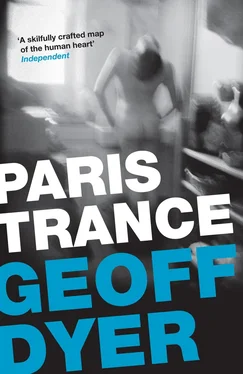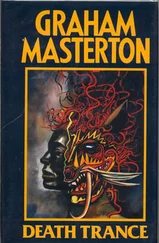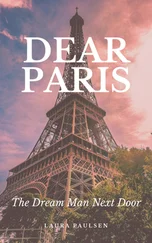‘Why on earth do we want to see that?’ he said.
‘It’s very interesting,’ said Nicole. ‘It was a civilisation in which nothing ever happened, a culture which consisted entirely of sitting. Very like Paris in fact.’
Fortunately (for Luke) most of the Egyptian wing was closed, for renovation; unfortunately, they found themselves in an endless collection of armour and weapons from the twelfth century onwards. The earliest guns looked like dark fossils, as if they would have been more use as clubs. Gradually the guns became more ornate with elaborate decoration on the barrels and handles. Fowling pieces, muskets, flintlocks, stand-and-deliver pistols. Then there were the swords, ‘the unbelievably boring swords’ (Nicole): halberds, pikes, sabres, broadswords so huge that they didn’t seem like instruments of violence, just totems of violent intent. That was the attacking side; on the defensive side there was the armour (‘the even more unbelievably boring armour’): tons of the stuff, row upon row of breast-plates and helmets, cleaned up to a kind of dull sheen. Suits of armour, evidently, were ten a penny in some army surplus store of museum artefacts. Taken together these paired displays of armour and weaponry foretold the entire history of the arms race: attack and defence cancelling each other out, their interaction becoming more and more elaborate until everything was raised to a level of rhetoric.
The undertow of violent intent lent this section of the museum a certain minimal fascination (for Luke, at any rate) but they soon found themselves in a wing devoted to decorative arts. Luke and Nicole were searching for an exit but all the signs directed them through mile after mile of tables, desks, carpets, chairs, bureaux and beds. They were desperate to get out of the energy-sapping heat but after the carpets and beds came the porcelain: tea-cups, plates, dishes, pots, saucers: anything that happened to have survived from the Ming or any other dynasty.
‘This is it,’ said Luke. ‘The real bargain basement, the flea-market of ancient history.’ They were moving quickly, hardly glancing at any of the meticulously labelled bits of broken crockery.
‘I’m exhausted,’ said Nicole. ‘It’s like walking across a desert.’
‘I’ve got museum knee, museum back: the works. I don’t think I can walk another inch,’ said Luke, but there were many miles of bits and pieces to trudge through before they erupted finally into the late-twentieth-century light.
‘That settles it,’ said Luke. ‘One day I am going to open a museum of boredom. A history of tedium through the ages. Global in scope, displaying the full range of boredom, all the culturally and historically specific variants.’
Nicole had claimed she was exhausted but the prospect of being back in the saddle revived her. ‘Let’s go to the mosque,’ she said, unlocking her bike. ‘We can have thé à la menthe there.’
Inside, the mosque was crowded, smoky, secular. Luke was ecstatic to be sitting down, free at last from museum-traipsing and pedal-pushing.
‘Sitting in the mosque, drinking mint tea, eating delicious harissa, already looking forward to ordering another tea: that’s what I’m doing now,’ he said. ‘That and watching the most gorgeous woman in the world eat her baklava.’ Specifically he was watching the bones in her jaw move as she chewed. There was a flake of pastry on her lip which she wiped away with a napkin. Luke did not want to tell her he loved her: they were words which, once spoken, could never again contain the feeling they had once conveyed. But the longing to tell her he loved her was overwhelming. He looked at her and said to himself, as powerfully as he could: I love you, I love you.
Before leaving the mosque Nicole bought some honey because she liked the elegant ‘glass tin’ that it came in.
‘Glass tin?’
‘Is that not the right word?’ she said, holding up the jar for him to see.
‘No, no. That’s absolutely right.’ Nicole also tried on a pair of pointy yellow babouches that smelt like an animal. Luke bought them for her and she wore them that night as she cooked dinner for them both at her apartment.
Luke was taken aback by the chaos in which she lived. The main space was a living room and kitchen. Yellow walls, orange book shelves. The news was on TV; the TV was on the draining board; the kettle was on the TV, on the brink of boiling. A leg of prosciutto was hanging from a hook screwed into the white-painted wooden beams that were all that remained of the wall that had once divided the space in two. Between these two beams were two filing cabinets, one black one orange. They were ugly things, filing cabinets: most people tried to hide them away in corners, but displayed prominently in the centre of the room like this, they had a kind of battered glamour. Propped against the back of one of them was an old mirror.
Luke had bought beer. The fridge was full so he broke up the pack and arranged the bottles in whatever nooks and crannies he could find and then put two glasses in the freezer. Nicole said,
‘Would you like some prosciutto?’
‘Um, no thanks.’
‘I don’t like prosciutto either. A relative brought it from Italy. I don’t know what to do with it.’
There was a bed at the far end of the room. Her bike — which she had carried upstairs — was propped against the wrought metal of the headboard. Papers and ill-treated books were all over the floor. There was even a piano. Luke lifted the lid and asked Nicole if she could play.
‘It’s just here because it’s too heavy to move. It’s hopelessly out of tune. Let me show you the rest of the place.’ She ushered him out of the main room and along a short corridor and into the bathroom. A pale green bath and toilet, a round wooden mirror. Lotions. Shampoo. Candles. She led him out into the corridor again.
‘That was the bathroom, obviously. And this,’ she said archly, ‘is the bedroom.’ There was a single mattress on the floor, true, but it bore a closer resemblance to a vast walk-in wardrobe. Except it was almost impossible to walk in. A rail was crammed with coats and dresses. Shirts, trousers, socks lay in heaps on the floor or were piled on chairs.
‘Actually,’ she said, ‘although this is officially the bedroom, we don’t sleep in here.’ (He loved that ‘we’.) ‘Mainly because there’s not actually any room.’
‘You could do with a chest of drawers.’
‘I hate drawers. I always stuff them too full and they get stuck so I have to saw them open.’ Luke followed her back into the kitchen.
‘Would you like a beer?’ he said.
‘Please.’
He rummaged in the fridge, decided that the bottles were not cold enough, took the glasses out of the freezer, crammed the bottles in there instead and found room for the glasses in the fridge.
‘Put a record on,’ she said. He played the record that was already on the turntable, ‘Bonnie and Clyde’ by Serge Gainsbourg, duetting (somewhat absurdly) with Brigitte Bardot. While that was playing he looked at her LPs which were stacked on top of each other so that any dust became wedged in the grooves. He pulled out a recording of Bach’s Well-Tempered Clavier — at least that’s what it said in the cover. Inside was a Chet Baker record. He put it on anyway.
‘Where’s the lid to the record player?’
‘It got broken when I tried to make cheese in it.’
‘Ah yes, of course.’ He opened the fridge, took the beer out of the freezer and poured two bottles into the chilled glasses which they clinked before drinking. Still holding her glass, Nicole crouched down and looked in the oven. Chet played some trumpet and then began singing ‘There Will Never Be Another You’.
‘Did you see that mirror by the filing cabinet?’ said Nicole.
Читать дальше












